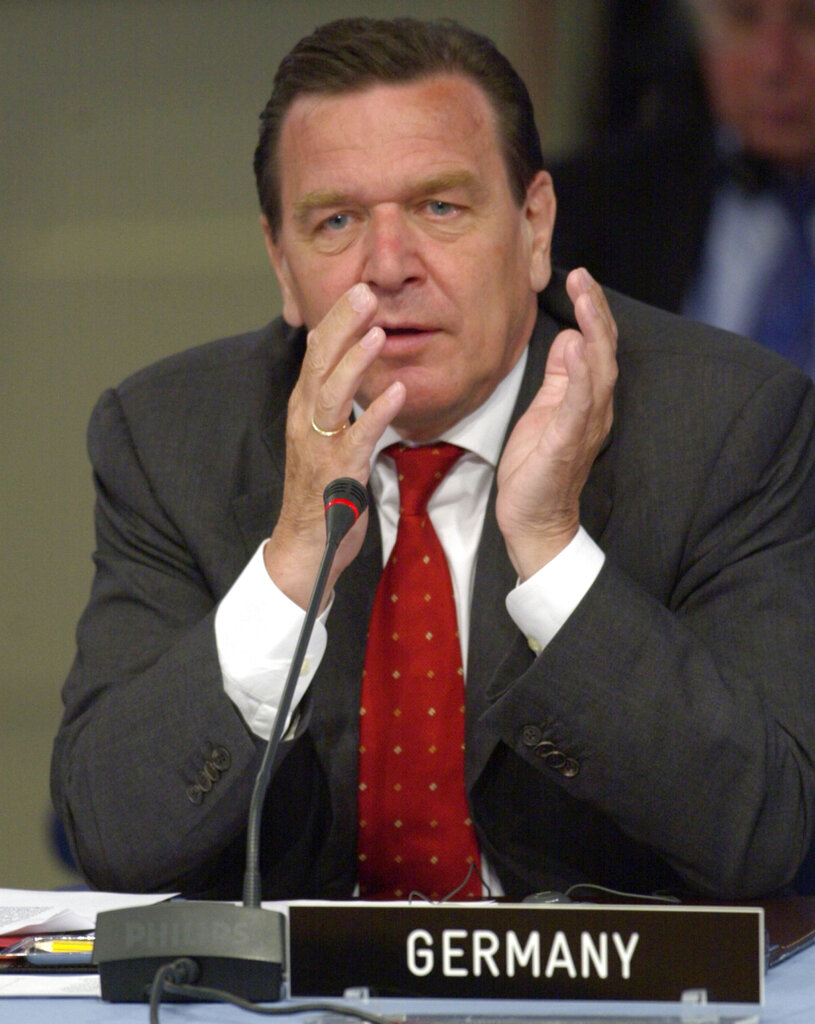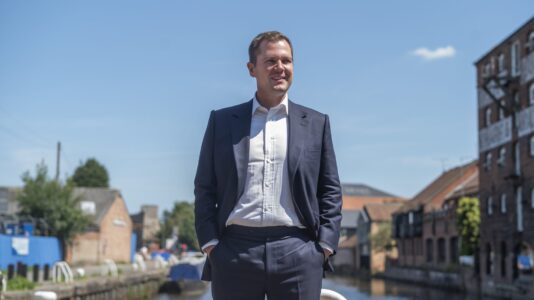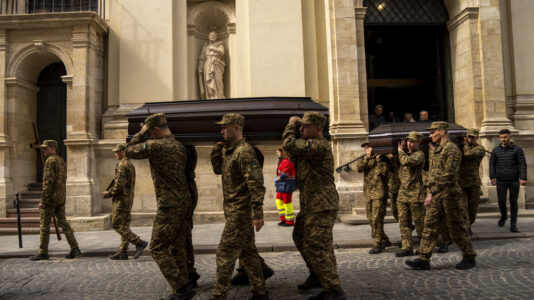Former German chancellor Gerhard Schröder (Social Democrats) is nearly a cult figure in Germany, with the former chancellor still wildly popular, which might be why it is so surprising that he appears to be backing Donald Trump in upcoming elections in a country where Trump is widely despised.
A big reason behind his support for a Trump victory has to do with the ongoing war in Ukraine, according to an interview he gave to Swiss weekly Die Weltwoche.
“Given our history, let’s ask: How can massive conflicts lead to even more massive conflicts? Could the world explode when the powers collide? We must make every effort to suppress such conflicts at an early stage. It sounds a little strange to say now that I hope Trump wins. But okay, maybe that’s a solution,” he said. However, Schröder did criticize him for running at such an advanced age.
Like Trump, Viktor Orbán is a conservative and populist hero for many, but in Germany, many of the same people who vote for Schröder despise the Hungarian leader. Schröder, however, does not appear to entirely share this position.
Schröder told WeltWoche that while he is not “necessarily a supporter of Orbán,” the former chancellor called Orbán’s peace mission very useful and reasonable, noting that nuclear escalation is a greater threat than the public currently perceives.
The former German leader talked about some of Germany’s and the world’s biggest problems in the interview and confirmed he is a supporter of peace negotiations in Ukraine.
Schröder is known for not always toeing the line on controversial issues, including his decision to keep Germany out of the war in Iraq, a decision he faced pressure for when he first made it, but which turned out to be the right decision in retrospect.
Russia was wrong, but peace must be pursued
Upon “miraculously” replacing Helmut Kohl after 16 years, the interviewer recalled that Schröder was someone who was able to oppose even the leadership of his own party if he did not agree with their decisions.
As an example, he mentioned the “anti-American” and “pro-Putin” accusations that were once brought against him, when, after the 2001 terrorist attacks, he said no to the war against Saddam Hussein. Schröder noted, “We had an alliance with the USA, but there were also differences of opinion on some issues.”
According to Schröder, Vladimir Putin also contributed greatly to the fact that the point came when, together with French President Jacques Chirac, they decided not to follow the Americans.
“Putin was very important at that time. He believed that the attack on Iraq was wrong and convinced Chirac of this. This made my job a lot easier too. We realized that nothing good can come out of such a war. Saddam Hussein was an evil dictator, but he had nothing to do with the 9/11 terrorist attacks. At that time, in the wake of this decision, it also became clear how important good cooperation between France and Germany is. If the French-German engine falters, then Europe is also going badly. Moreover, there was no question as to who had the leading role. Jacques Chirac was a great personality who knew even then that Germany was the most important power.”
In this regard, in connection with the Russian-Ukrainian war, Schröder emphasized that, despite his good relationship with Russia and Putin at the time, he is not at all one of those who believe that “the war launched from Russia against Ukraine can be justified somehow. I know about the conflicts that existed before the war, in which many people are not innocent. And I also know that other possibilities could have happened.
“But this cannot be an excuse for Russia’s war against Ukraine, it must always be made clear. At the same time, we must also think about arms shipments and military support for Ukraine, whether these are really options for us.”
Schröder says Ukraine should be supported in defending its territory, while it should not depend solely on the Americans or the Chinese to bring a ceasefire. No one in Russia believes that the country’s capitulation would be possible, or that the UN could enforce this, he says, adding that “we must use every opportunity to call for an end to this war. Especially because the main loser of the war is Ukraine, and in a broader sense, the whole of Europe.”
Schröder believes that the best way to end the conflict is via dialog with America and Russia, that is, Germany and France should discuss this issue with them as a matter of priority so that they could then convince a new American president of the need for this. Such an initiative is unlikely to come from China, he says.
Merkel’s migration policy
The former chancellor spoke openly about the impracticalities of Merkel’s “welcome” policy when it came to migration. “Those whose life or physical integrity are in danger may be granted asylum. But others, for economic reasons or criminals, such parties are taking control of the situation without the state showing any ability to react,” he said.
“In 2015, Angela Merkel very fairly said that everyone should come. (…) This may be correct in the Bible, but it is impractical in everyday life. You have to be able to prove whether someone is really entitled to asylum or not. Then you have to talk about the material conditions and compare them with the income that a person can get with simple work. If this is not balanced, and there are parties that know how to exploit the vacuum, the end result will be bad. The will of the majority, and I am one of them, who absolutely want to maintain the right to asylum is at risk; this is the case today.”
Dealing with the AfD
As for what advice he would give to his party members in dealing with the AfD, the politician replied that he can understand those who do not want to form a coalition, but the rules of democracy must always be followed, noting that he doesn’t think Sahra Wagenknecht is a communist and that Olaf Scholz should simply continue talking directly about the economy.
“But above all, politics must convey that only a society can exist well in which everyone who can, not those who are too sick, the young or old, can take care of himself and his family. And only if the latter do not work, the welfare state must intervene. This balance must not be allowed to slip, otherwise many people will ask themselves the question: Why should we go to work, if those living on social assistance are not much worse off? Everyone is responsible for themselves in this matter.”
When asked what influenced him the most after the Second World War, as a member of the “fatherless generation” and living in extreme poverty, he mentioned his warm-hearted mother, “who never gave up hope” and did everything to ensure that her children have a better life. He also recalled a typical story, according to which his mother, who died at the age of almost a hundred years old, took on cleaning even during her son’s prime ministership, not because she had to make a living from it, but because she “needed the work.”
He noted Willy Brandt and Helmut Schmidt as his role models in this field, saying “they were the kind of social democrats that made it worth fighting for one to become like them.”






